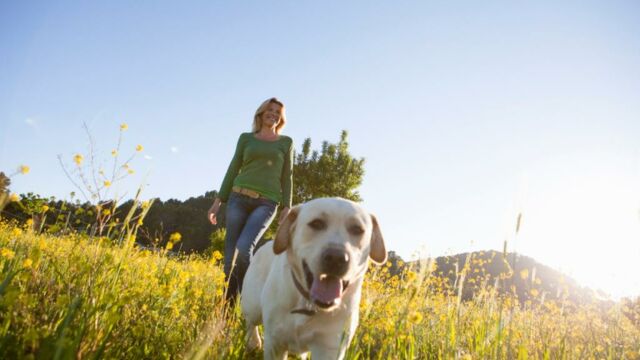The amount of dog poo and urine being deposited in nature reserves could be damaging to wildlife, a new study has found. The deluge of dog waste results in high levels of overfertilization which would be illegal on farmlands.
Discover our latest podcast
An Overlooked Source of Pollution
According to researchers, the nutrients excreted by dogs on walks, leave an annual average of 11kg of nitrogen per hectare, and 5kg of phosphorous.
They say the level of pollution generated by this dog waste is equivalent to that which is transported through the air from farming, industry and traffic fumes which is typically between 5kg and 25kg of nitrogen.
Prof Pieter De Frenne of Ghent University, who led the research, who led the research said:
We were surprised by how high the nutrient inputs from dogs could be. Those levels are quite staggering, as our study concerned nature reserves. Atmospheric nitrogen inputs from agriculture, industry and traffic rightfully receive a lot of policy attention, but dogs are entirely neglected in this respect.
These findings were made after researchers counted dog numbers over 18 months in four nature reserves on the outskirts of Ghent in Belgium. They said the situation would be similar across Europe, which is home to about 87 million dogs.
Pick up, Bag & Bin
Although many dog owners believe leaving their pet’s waste in nature is harmless, the study suggests the impact of dog urine and faeces on the environment is quite significant.
This is because the nutrients in their waste allow a few thriving plants such as nettles and hogweed to drive out others and the wildlife that depends on them, thereby reducing biodiversity.
Previous research found that high nutrient levels can persist even three years after dogs are banned. Prof. De Frenne said
Of course, there are a lot of beneficial effects [to walks in nature], both physically and psychologically, for owners and their dogs but the drawback is bringing in significant amounts of nutrients.
You may be wondering at this point what you should be doing differently as a dog owner to help protect biodiversity. Well, the research, published in the journal of Ecological Solutions and Evidence says, the first step is to be aware of the harm being caused by your pet’s waste.
Rob Stoneman, director of landscape recovery at The Wildlife Trusts, UK, said:
Obviously, poo is a part of nature, but dog poo contains nutrients which can damage the ecology of vulnerable habitats. Wherever you walk your dog, it is important to pick up, bag and bin poo, to ensure the continued protection of these wild areas for us all to enjoy.















